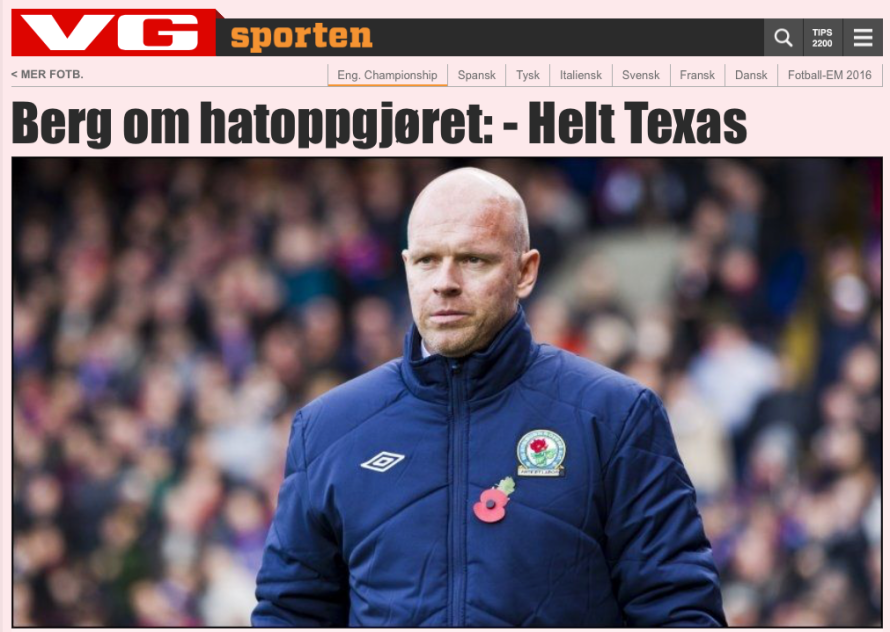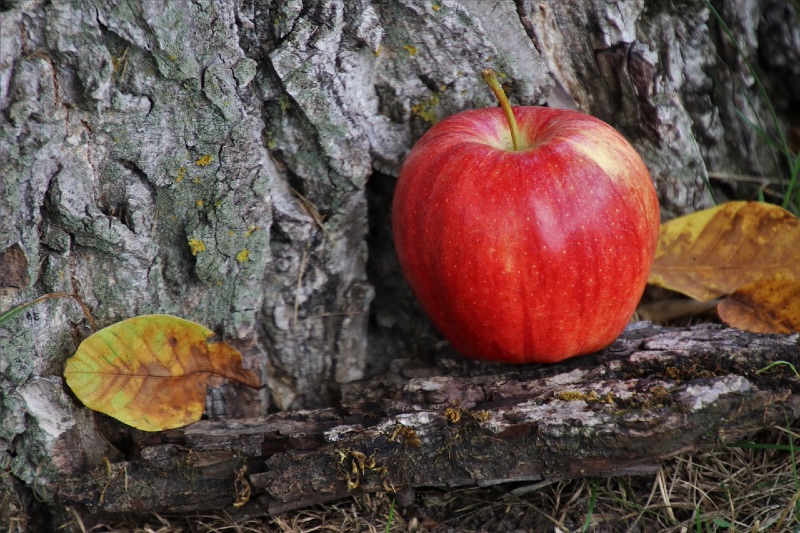Norwegian has plenty of quirky sayings that teach you a lot about the society and culture. Here's a small collection of them to get you started.
It's one thing trying to learn a language in class or from textbooks, but a language only really comes alive when you understand the words, phrases and sayings that just don't translate.

Most countries around the world have their own unique phrases where meaning isn’t always obvious from the words themselves. The sayings or idioms often sound odd just based on the words themselves, especially when directly translated.
If you're learning Norwegian there's a weird and wonderful collection of Norwegian phrases to learn. There are many that only have subtle differences from English equivalents. I hope you enjoy this article because it was great fun to write!
Learn Norwegian Now: Norwegian Class 101 / The Mystery of Nils
If you're learning Norwegian, don't forget to check out the other posts on our language learning blog.
det finnes ikke dårlig vær, bare dårlige klær
Depending on the time of year you arrive, this is probably the first Norwegian saying that newcomers hear. Usually, you hear it whilst dripping with rainwater, wringing out your soaking wet socks, before a trip to the nearest outdoor clothing store.

The meaning is fairly obvious, I think! But you can read a full article about the phase here. Norwegians love the outdoors and nothing—not even snow or a rainstorm—will stop them from enjoying it!
å stå/sitte med skjegget i postkassen
To stand or sit with the beard in the mailbox is a strange expression, but the meaning is fairly easy to work out! It simply means to be stuck in an uncomfortable situation. For example you've done something stupid or been caught cheating.
det var helt texas
The phrase “it was totally Texas!” may be heard in reference to a wild party, a toxic atmosphere at a sports game, or even crazy traffic, not that the latter occurs very often in Norway.
Although the expression became widely known outside the country when US-based media jumped on the bandwagon a couple of years ago, it actually dates back several decades.

The original meaning of the phrase was to compare something to the cowboys of the old Wild West, in terms of their unpredictability, and an exciting and/or scary atmosphere. These days it's more likely to indicate something is totally crazy or bonkers.
man skal ikke skue hunden på hårene
The Norwegian equivalent of you shouldn't judge a book by its cover literally translates as you shouldn't judge a dog by its hairs!
Learn Norwegian Now: Norwegian Class 101 / The Mystery of Nils
å være midt i smørøyet
To understand the phrase “to be in the middle of the butter eye” you need to understand Norwegian cuisine. The dish of risgrøt, a warm porridge, is traditionally served with a dollop of butter that melts into the middle, leaving a hole, known as the butter eye.
To be there simply means to be in a good place. And who wouldn't want to be melting into the middle of a bowl of porridge!?

gammel vane er vond å vende
English translation: Old habbits is difficult to turn.
It is the same as the English saying, “Old habits die hard” and means it is hard to stop doing something you have being doing for a significant length of time.
ugler i mosen
English translation: Owls in the moss. It means that something is happening that is suspicious or amiss. “Ugler I mosen” is of Danish origin and was originally “wolves in the marshes”; but it is said that when wolves disappeared from the wild in Denmark, the saying evolved into owls.
There is also a 1959 Norwegian film written and directed by Ivo Caprino called Ugler I mosen; its title is derived from the idiom, “I smell a rat; there is mischief afoot”.
morgenstund har gull i munn
English translation: Morning time is gold in the mouth. This is an expression that comes from Old Norse, North Germanic language. In Icelandic, the saying is,” morning time gives gold in the hand”, meaning, if you get up early enough you can achieve more.
It is similar to the English saying the “the early bird catches the worm”. You can read more about it on this blog (in Norwegian)
eplet faller ikke langt fra stammen
English translation: The apple doesn’t fall far from the trunk. This saying is essentially the same as the English, “the apple doesn’t fall far from the tree”. It typically means that children show the same traits as their parents.

like barn leker best
English translation: Similar children play best. This one is similar to the English phrase, “Birds of a feather flock together“. It usually means, people (or children in the Norwegian version) with the same tastes and interests will be found together.
(man kan ikke få) både i pose og sekk
English translation: One can't get both the bag and sack. This phrase is a figure of speech that is broadly equivalent to you can't have your cake and eat it. It can infer an impossible action or behaviour. Evidence suggests it was first used some time around the sixteenth century.
Learn Norwegian Now: Norwegian Class 101 / The Mystery of Nils
førstemann til mølla
English translation: First man to the mill’ or sometimes just ‘first to the mill. It literally means, first come first served – in Norwegian, the first to the mill gets the flour (and usually a competition is involved when using this saying).
smi mens jernet er varmt
English translation: forge while the iron is hot. The English version is “to strike while the iron is hot“. It means to do something quickly at an opportunistic/ideal moment.
storm i et vannglass
English translation: Storm in a glass of water. This Norwegian phrase is the same as the British English saying “storm in a teacup”. It means, an exaggeration of a trivial matter.

som plommen i egget
English translation: Like the yolk in the egg. It means to feel good in a certain instance, like starting a new job or being somewhere nice on holiday – everything is good, I am content.
bedre føre var (enn etter snar)
English translation: Better before than looking back in regret. ‘Bedre føre var’ is the most common usage. It's a phrase that means to take a precaution and not take an unnecessary risk.
bedre sent enn aldri
English translation: Better late than never. This one is the same as the English variant and is pretty self-explanatory.
øving gjør mester
English translation: Practice makes perfect. Again, this is another one that is the same as the English equivalent and it means to do something over and over until perfection is achieved.
fra asken til ilden
English translation: from the ashes to the fire. This phrase means, going from one bad thing to another. And is similar to the English saying, “out of the frying pan into the fire”.
ta med en klype salt
English translation: Take with a pinch of salt. This is a figure of speech that stems from the idea that it is easier to eat something with a little salt, and it means not to take something or someone too seriously.
ta for god fisk
English translation: Take for a good fish. This saying means to believe in something someone says or take someone’s word for granted; believe in what you are told and accept it without doubting; you are assuming it’s a good fish as opposed to a bad one. It is a phrase thats goes a little beyond the English saying, “I’ll take your word for it”.
aldri for sent å snu
English translation: It’s never too late to turnaround.
What's your favourite Norwegian phrase?


Most amusing. But as another norwegian speaking brit, I think you have omitted
“Det holder det sa Gundersen…..”!!!!!!!
Not many Norwegian speaking brits! How did you do it?? Andy Lowings UK
My daughter and family live in Nøtterøy,and we have visited many times. Sayings i like include ‘ I like måte'( you too), glad i deg( i love you), and har det godt(take care); and of course there are many more. Norway is such a beautiful,unspoilt country, and we have 2 teenage grandsons born and raised there.
T
Excellent, Mathew! This is the first time I have a really great compilation of idioms, which is important to learn when one is learning a new language.
Tusen takk!
Ruthie
It was great to know sayings from a Country across the world. Tusen takk!
My favourites.
1) å være midt i smørøyet
I like this one because it sounds delicious. Norwegian has got delicious sayings. 😄
2)eplet faller ikke langt fra stammen
I like this one because I could understand it at once!
For all the travelers out there: Borte bra, men hjemme best! Away is good, but home is best.
and this one serves us well too when trying to use our new language! “Drikk for mot” which means liquid courage.
Thanks for the compilation of phrases they are great!
My personal favorite is “Ut på tur, aldri sur!” which basically means “out for a walk, you’re never grumpy.” My mother-in-law says it when she’s heading out to walk the dog.
As a resident of Texas, I enjoyed det var helt Texas! Very appropriate.
Mye vil ha mer, og fanden vil ha fler 🙂
My mother always prefaced a request for us to do something, with “Du, som er saa snil”….”You, who are so kind”…….
Thank you so much for this great list of common phrases, I would like to add one of my favorite phrases also –
å være som fisken i vannet – to be like fish in a water. I think the meaning is clear here.
As one planning to migrate to Norway, I really found these helpful and educative.
Thank you
Recently in Norway Today I saw a Norwegian phrase that meant “waking early to hear the birds sing”. Can you please tell me the phrase?
Simular to the saying «morgenstund har gull i munn» 😊 Translation is Waking up early to hear the birds sing – meaning: Waking up really early
I loved these, brand new to Norwegian (moving there in 2022) and you have given me a lovely insight into the language. I’m a brit in france and enjoying the idea of adding ‘både i pose og sekk’ to ‘have your cake and eat it in’ my native english and ‘avoir le beurre et l’argent du beurre’ (having the butter and the money for the butter) in my adopted french.
Can you please translate this one for me. Embossed on a Norwegian wood burnin stove. The Google translate is highly suspect!
EG GREV NED MIN ELD.
SENT OM KVELD.
MAAR DAGEN ER SLUT GUD GJE MIN ELD ALDER SLOKNA UT.
Most appreciated!
I dig down my fire
late in the evening
When (misspelled) the day is over, God, see that my fire never (misspelled) never dies out.
Most likely very old saying. Used as a prayer/rhyme to make sure that glows from the fire place can be used to relight a new fire the day after.
Thank you. Very interesting. I study Norwegian a bit on an app (I had a Norwegian grandfather – in the States – who imparted to his descendants a love of Norway), and am glad to add these phrases to my knowledge of the language.
How do you say “What will be, will be ” in Norwegian (Que Será Será)
please 🙏
Det blir som det blir
I love to explore Norway culture, sayings and languages learning. It was interesting to learn idioms.
Hi.
Interesting reading, and I like that you try to make the Norwegian language a little bit easier to understand.
As a Norwegian it’s nice to see that the “translation” is nearly perfect. The only one that I think needs to be corrected is the expression;
“med skjegget i postkassen” since this actually means that you will be dissappointed. 🙂
Have fun with Norwegian!